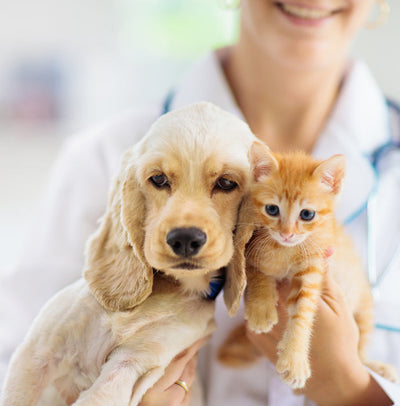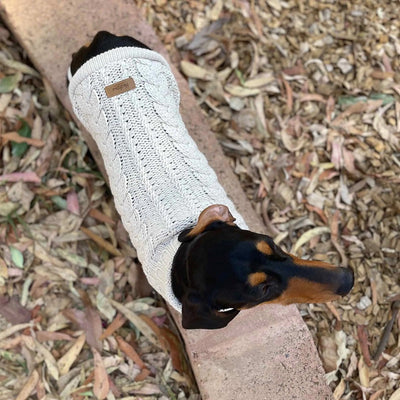
Bringing home a new pet rabbit can be a wonderful addition to your family, but it's important to be prepared for their arrival. From setting up their living space to providing proper nutrition and care, this ultimate guide will cover everything you need to know to ensure a smooth transition for your new furry friend.
Preparing Your Home for a Rabbit.
Before bringing home your new pet rabbit, it's important to prepare your home to ensure their safety and comfort. This includes setting up their living space, removing any potential hazards, and providing them with the necessary supplies and equipment. Make sure to also research and understand the specific needs and behaviors of rabbits to ensure a happy and healthy living environment.
Choosing the Right Rabbit and Supplies.
Before bringing home a new pet rabbit, it's important to choose the right breed and size for your living situation and lifestyle. Additionally, you'll need to gather all the necessary supplies such as the:
- Hutch
- Bedding
- Food
- Food bowls
- Water bottle
- Chew treats
- Mineral chews
- Hide
It's important to invest in high-quality supplies to ensure your rabbit's health and happiness. Our knowledgeable staff can guide you through this process when you purchase your rabbit.
Introducing Your Rabbit to Their New Home.
When bringing home a new pet rabbit, it's important to introduce them to their new home slowly and carefully. Start by placing them in their cage with plenty of fresh water and food.
Allow them to explore their new surroundings at their own pace, and avoid overwhelming them with too much attention or handling in the first few days.
Gradually introduce them to new toys and play areas, and always supervise them during playtime outside of their cage.
Feeding and Caring for Your Rabbit.
Feeding and caring for your rabbit is an important part of being a responsible  pet owner. Rabbits require a diet that is high in fiber and low in fat, so make sure to provide them with plenty of oaten hay, fresh vegetables, and a small amount of pellets. It's also important to keep their living space clean and provide them with plenty of opportunities for exercise and play. Regular grooming and veterinary check-ups are also essential for keeping your rabbit healthy and happy.
pet owner. Rabbits require a diet that is high in fiber and low in fat, so make sure to provide them with plenty of oaten hay, fresh vegetables, and a small amount of pellets. It's also important to keep their living space clean and provide them with plenty of opportunities for exercise and play. Regular grooming and veterinary check-ups are also essential for keeping your rabbit healthy and happy.
Bonding with Your Rabbit and Building Trust.
Building a strong bond with your new pet rabbit is crucial for their overall well-being and happiness. Spend time with your rabbit every day, talking to them in a calm and soothing voice, and offering them treats. It's important to let your rabbit come to you on their own terms, rather than forcing them to interact with you. Over time, your rabbit will learn to trust you and enjoy spending time with you. Remember to always handle your rabbit gently and with care, as they can be easily frightened or injured.
What behaviours should I expect from my new pet rabbit?
Here are some behaviors you can expect from your new furry friend:
-
Litter Box Training: Rabbits are naturally clean animals and can be
 easily trained to use a litter box. Provide a litter box with hay or paper-based litter, and your rabbit will likely use it regularly.
easily trained to use a litter box. Provide a litter box with hay or paper-based litter, and your rabbit will likely use it regularly. -
Chewing: Rabbits have teeth that grow continuously, so they need to chew on things to keep them from becoming too long. Provide your rabbit with plenty of chew toys and safe chewing materials, such as untreated wood or hay cubes, to satisfy their natural urge to chew.
-
Hopping and Running: Rabbits are active animals that love to hop and run around. Providing a safe, enclosed space for them to play in, such as a playpen or rabbit-proofed room, will keep them happy and healthy.
-
Socialising: Rabbits are social animals and enjoy spending time with their owners and other rabbits. Spend time with your rabbit every day, petting them and talking to them, and consider getting a second rabbit for companionship.
-
Grooming: Rabbits are fastidious groomers and will spend hours each day grooming themselves. Regular brushing and nail trimming will help keep your rabbit healthy and comfortable.
-
Thumping: Rabbits can communicate through body language, and one of their methods is thumping their hind legs on the ground. This behavior can indicate fear, anger, or even excitement.
-
Binkying: A happy rabbit may perform a joyful leap in the air, also known as a "binky." This is a sign that your rabbit is feeling happy and comfortable in their environment.
Remember that every rabbit is unique, and your new pet may have their own quirks and personality traits. With patience, love, and attention, you and your rabbit will form a wonderful bond.
© weknowpets 2023







